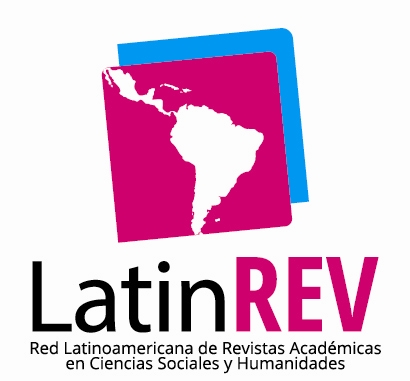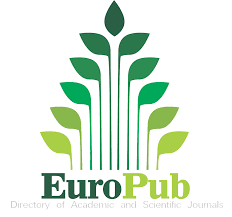The incorporation of generative artificial intelligence in the research and writing practices of mexican scientists
DOI:
https://doi.org/10.62325/10.62325/yachana.v13.n2.2024.924Palabras clave:
Formación de personal científico, Estrategias en la investigación, Inteligencia ArtificialResumen
Este artículo examina la incorporación de la Inteligencia Artificial (IA) en las prácticas de investigación y escritura de científicos mexicanos. Se realizaron entrevistas semiestructuradas a investigadores de las áreas de biología, ciencias biológicas y ciencias biomédicas. Se encontró que el uso más común de herramientas de IA es para mejorar, transformar y adaptar textos, especialmente en la corrección de manuscritos en inglés, facilitando así la publicación en contextos internacionales. Otros usos incluyen la búsqueda de bibliografía, el apoyo como tutor virtual, la interpretación preliminar de datos y la generación de código de programación para análisis estadísticos. Solo uno de los participantes utiliza la IA como asistente de investigación para definir objetivos y metodologías. Todos los participantes coincidieron en que la IA mejora su eficiencia. Sin embargo, también identificaron problemas significativos, como el plagio, la filtración de información y la deshonestidad académica. Varios denunciaron el uso indebido de textos completos generados por IA, práctica observada tanto en estudiantes como en investigadores consolidados. Ante estos desafíos, es fundamental implementar programas de formación, campañas de concientización y establecer lineamientos éticos actualizados. El artículo concluye con recomendaciones para mejorar la transparencia y la declaración del uso de IA en la investigación.
Descargas
Citas
Alkaissi, H., & McFarlane, S. I. (2023, February 19). Artificial Hallucinations in ChatGPT: Implications in Scientific Writing [Editorial]. Cureus, 15(2). https://doi.org/10.7759/cureus.35179
Bom, HS. H. (2023). Exploring the Opportunities and Challenges of ChatGPT in Academic Writing: a Roundtable Discussion. Nuclear Medicine and Molecular Imaging, 57, 165–167. https://doi.org/10.1007/s13139-023-00809-2
Briggs, J., & Kodnani, D. (2023, March 24). The Potentially Large Effects of Artificial Intelligence on Economic Growth (Briggs/Kodnani). Goldman Sachs. https://tinyurl.com/akjpmp3w
Cabanac, G., & Labbé, C. (2021, December). Prevalence of nonsensical algorithmically generated papers in the scientific literature. Journal of the Association for Information Science and Technology, 72(12), 1461–1476. https://doi.org/10.1002/asi.24495
Díaz-Bravo, L., Torruco-García, U., Martínez-Hernández, M., & Varela- Ruiz, M. (2013, julio-septiembre). La entrevista, recurso flexible y dinámico. Investigación en Educación Médica, 2(7), 162–167. https://www.redalyc.org/pdf/3497/349733228009.pdf
Dwivedi, Y. K., Kshetri, N., Hughes, L., Slade, E. L., Jeyaraj, A., Kar, A. K., Baabdullah, A. M., Koohang, A., Raghavan, V., Ahuja, M., Albanna, H., Albashrawi, M. A., Al-Busaidi, A. S., Balakrishnan, J., Barlette, Y., Basu, S., Bose, I., Brooks, L., Buhalis, D., … Wright, R. (2023, August). Opinion Paper: “So what if ChatGPT wrote it?” Multidisciplinary perspectives on opportunities, challenges and implications of generative conversational AI for research, practice and policy. International Journal of Information Management, 71, 102642. https://doi.org/10.1016/j.ijinfomgt.2023.102642
Else, H. (2023, January 12). Abstracts written by ChatGPT fool scientists [News]. Nature, 613. https://doi.org/10.1038/d41586-023-00056-7
Golan, R., Reddy, R., Muthigi, A., & Ramasamy, R. (2023, June). Artificial intelligence in academic writing: a paradigm-shifting technological advance. Nature Reviews Urology, 20, 327–328. https://doi.org/10.1038/s41585-023-00746-x
Gozalo-Brizuela, R., & Garrido-Merchán, E. C. (2023). A survey of Generative AI Applications. ArXiv. http://arxiv.org/abs/2306.02781
Grimaldi, G., & Ehrler, B. (2023, January 4). AI et al.: Machines Are About to Change Scientific Publishing Forever. ACS Energy Letters, 8(1), 878–880. https://doi.org/10.1021/acsenergylett.2c02828
Hill-Yardin, E. L., Hutchinson, M. R., Laycock, R., & Spencer, S. J. (2023, May). A Chat(GPT) about the future of scientific publishing. Brain, Behavior, and Immunity, 110, 152–154. https://doi.org/10.1016/j.bbi.2023.02.022
Huang, J., & Tan, M. (2023). The role of ChatGPT in scientific communication: writing better scientific review articles. American journal of cancer research, 13(4), 1148–1154. https://tinyurl.com/yc8xbbvj
Hutson, M. (2022, October 31). Could AI help you to write your next paper [Technology Future]. Nature, 611, 192–193. https://tinyurl.com/3tme3mvh
Kim, S.-G. (2023, March 8). Using ChatGPT for language editing in scientific articles. Maxillofacial Plastic and Reconstructive Surgery, 45, Article 13. https://doi.org/10.1186/s40902-023-00381-x
Lee, J. Y. (2023). Can an artificial intelligence chatbot be the author of a scholarly article? Science Editing, 10(1), 7-12. https://doi.org/10.6087/kcse.292
Marchandot, B., Matsushita, K., Carmona, A., Trimaille, A., & Morel, O. (2023, March). ChatGPT: The next frontier in academic writing for cardiologists or a pandora’s box of ethical dilemmas. European Heart Journal Open, 3(2), oead007. https://doi.org/10.1093/ehjopen/oead007
Nature. (2023, January 24). Tools such as ChatGPT threaten transparent science. Here are our ground rules for their use [Editorial]. Nature, 613. https://doi.org/10.1038/d41586-023-00191-1
OpenAI. (2022, January 27). Aligning language models to follow instructions. OpenaiAI. https://tinyurl.com/39nvh5r2
Sabzalieva, E., & Valentini, A. (2023). ChatGPT and Artificial Intelligence in higher education Quick start guide. UNESCO. https://tinyurl.com/ym9hk4y4
Sallam, M. (2023). ChatGPT Utility in Healthcare Education, Research, and Practice: Systematic Review on the Promising Perspectives and Valid Concerns. Healthcare, 11(6), Article 887. https://doi.org/10.3390/healthcare11060887
Santiago-Ruiz, E. (2023). Writing with ChatGPT in a context of educational inequality and digital divide. International Journal of Education and Development Using Information and Communication Technology (IJEDICT), 19(3), 28–38. https://tinyurl.com/5n9aybfr
Santiago-Ruiz, E. (2024, February). Automation of administrative texts and formal communication with ChatGPT. Transdigital, 5(9). https://tinyurl.com/ys4vwv3r
Stokel-Walker, C. (2023, January 18). ChatGPT listed as author on research papers: many scientists disapprove [News]. Nature, 613. https://doi.org/10.1038/d41586-023-00107-z
Turing, A. M. (1950, October). Computing Machinery and Intelligence. Mind, New Series, 59(236), 433–460. https://www.jstor.org/stable/2251299
Van Noorden, R. (2021, May 28). Hundreds of gibberish papers still lurk in the scientific literature [News]. Nature, 594, 160–161. https://doi.org/10.1038/d41586-021-01436-7
Vincent, J.-L. (2023). How artificial intelligence will affect the future of medical publishing. Critical Care, 27, Article 271. https://doi.org/10.1186/s13054-023-04511-9
World Economic Forum. (2023, September). Jobs of Tomorrow: Large Language Models and Jobs. https://tinyurl.com/v32a3b7v
Publicado
Cómo citar
Número
Sección
Licencia
Derechos de autor 2024 Yachana Revista Científica

Esta obra está bajo una licencia internacional Creative Commons Atribución-NoComercial 4.0.





















